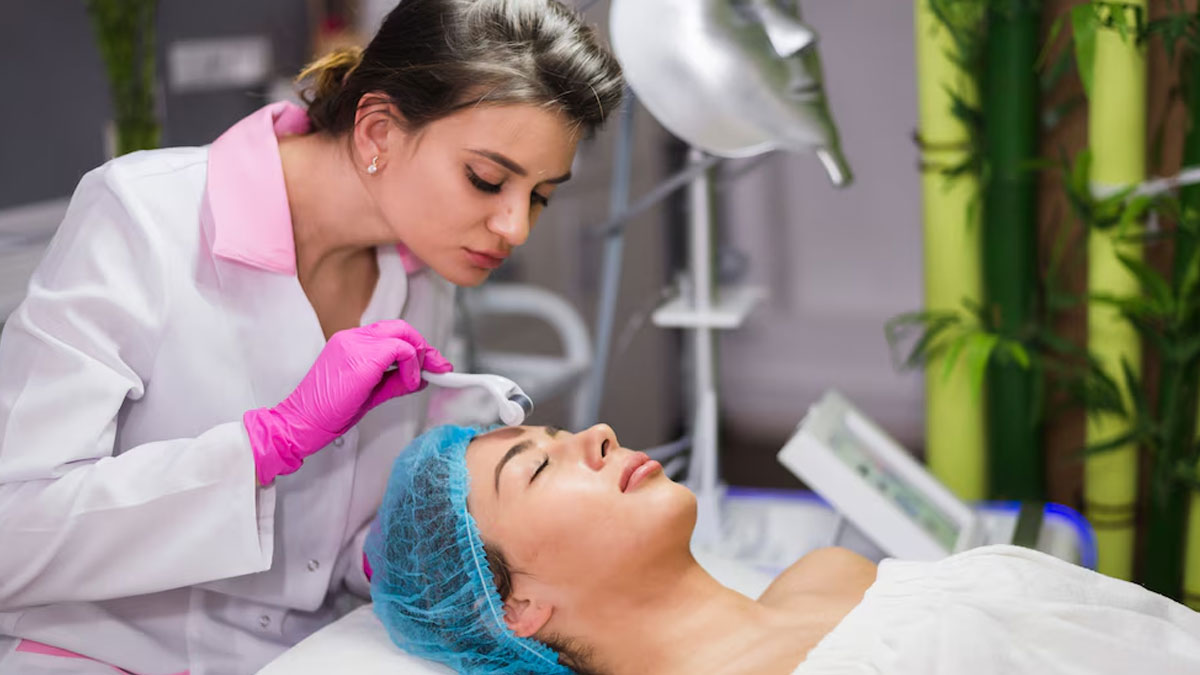
After receiving a skincare treatment, it's natural to feel excited about the results, but what comes next is equally important. Whether you've undergone a facial, chemical peel, laser therapy, or received injectables like Botox, the way you look after your skin in the days following the treatment is vital for preserving the benefits of the procedure. Without proper post-treatment care, you may be at risk of irritation, delayed healing, or even complications. We spoke to our expert Dr Kratika Mohan, Dermatologist, who shared a concise guide to help you manage your skin after these procedures.
Table of Content:-
General Post-Procedure Care Tips
Here are some post-procedure skin care tips shared by Dr Mohan:
1. Follow Your Dermatologist’s Instructions

Every treatment has a different recovery process and your dermatologist will provide specific aftercare instructions based on your procedure and skin type. Following these guidelines closely helps avoid side effects and ensures smooth healing.
2. Avoid Sun Exposure
"Protecting your skin from the sun is essential after any treatment. This is because UV exposure can worsen inflammation and cause hyperpigmentation. Use a broad-spectrum sunscreen with at least SPF 30, and consider wearing protective clothing or staying indoors during peak sunlight hours," said Dr Mohan.
According to the Indian Journal of Dermatology, skin damage caused by Solar Ultraviolet Radiation (UVR) is becoming a growing concern in dermatology, with a rising incidence of skin cancer, particularly Non-Melanoma Skin Cancer (NMSC), reported globally. Various environmental factors can disrupt the skin's regulatory and repair mechanisms, contributing to the development of dermatological conditions.
Also Read: Skincare Devices At Home: Expert Answers If They Are A Smart Investment Or Just A Trend?
3. Use a Gentle Cleanser

After a procedure, your skin is sensitive and prone to irritation. Hence, use a mild, fragrance-free cleanser and avoid exfoliating or using products with active ingredients like retinoids or acids unless advised by your dermatologist. Pat your skin dry gently instead of rubbing it.
4. Hydrate Your Skin
“You should not ignore the importance of hydration as it is the key to skin healing. Drink plenty of water and use a moisturising product with hydrating ingredients, such as hyaluronic acid or ceramides,” said Dr Mohan. Make sure to steer clear of moisturisers containing alcohol or fragrance to avoid irritation.
5. Avoid Irritants
Skip products that contain alcohol, fragrances, or harsh chemicals, as they can irritate sensitive post-procedure skin. Stick to a minimalist routine, focusing on gentle, non-comedogenic products that nourish and protect.
Specific Post-Procedure Care for Common Treatments
1. Facials

During the first 24 hours, avoid touching or applying makeup to your face. Use soothing and hydrating products as recommended by your esthetician.
2. Chemical Peels
After a chemical peel, avoid direct sunlight, and allow the skin to naturally peel off without picking at it. Use a mild cleanser and any prescribed healing ointments or moisturisers.
3. Laser Resurfacing
After laser treatments, protect your skin from sun exposure, and follow your dermatologist's instructions for ointments or dressings. Redness and swelling may persist for a few days, so be patient during the healing phase.
4. Injectables (Botox, Fillers)
Avoid touching or massaging the treated area for 24 to 48 hours. In case of swelling or bruising, ice packs can be helpful. Avoid strenuous exercise for the first day post-treatment.
When to Seek Medical Attention
"If you experience severe pain, excessive redness, blistering, scabbing, unusual bleeding, or fever, contact your dermatologist immediately. These symptoms may indicate a complication and require prompt medical attention," advised Dr Mohan.
Additional Post-Procedure Tips

- Be Patient: Healing takes time, especially after more invasive treatments. Avoid picking or scratching at scabs or peeling skin to prevent scarring or infections.
- Cold Compresses for Swelling: Applying cold compresses can help reduce swelling and soothe irritation, especially after laser treatments or injectables.
- Avoid Excess Heat and Sweating: Skip saunas, steam rooms, and vigorous workouts, as heat and sweat can irritate sensitive skin and prolong healing.
- Limit Alcohol and Caffeine: Both alcohol and caffeine can dehydrate the skin, so it’s best to avoid these substances for a few days post-treatment.
By following these post-procedure care tips and remaining in close contact with your dermatologist, you can ensure a smooth recovery and maximise the benefits of your skincare treatments.
[Disclaimer: This article contains information provided by an expert and is for informational purposes only. Hence, we advise you to consult your own professional if you are dealing with any health issues to avoid complications.]
Also watch this video
How we keep this article up to date:
We work with experts and keep a close eye on the latest in health and wellness. Whenever there is a new research or helpful information, we update our articles with accurate and useful advice.
Current Version